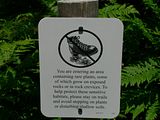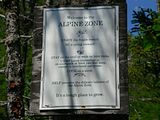ADK4Life
New member
- Joined
- May 14, 2004
- Messages
- 281
- Reaction score
- 6
"Bushwhack a route up to MT Lincoln? Need I say more for such abuse to the most populated trek in the Whites?
What happens when you get to the Alpine zone?"
A trailess ascent up Lincon would never become popular, at best the few that would go through such and undertaking would probably not repeat. Have you never been on an established trail and asked yourself what it would be like to ascend up a route that catches your eye?
"John Muir did travel this land wild and trail-less, but was also a master of LNT and helped lead the effort to establish protected National Parks.
The name “bushwhack” alone suggests a damaging activity."
Read up on Muir a bit more on his trailess ascents up smaller mountians. You will find he really wacked his way through parts.
What happens when you get to the Alpine zone?"
A trailess ascent up Lincon would never become popular, at best the few that would go through such and undertaking would probably not repeat. Have you never been on an established trail and asked yourself what it would be like to ascend up a route that catches your eye?
"John Muir did travel this land wild and trail-less, but was also a master of LNT and helped lead the effort to establish protected National Parks.
The name “bushwhack” alone suggests a damaging activity."
Read up on Muir a bit more on his trailess ascents up smaller mountians. You will find he really wacked his way through parts.


